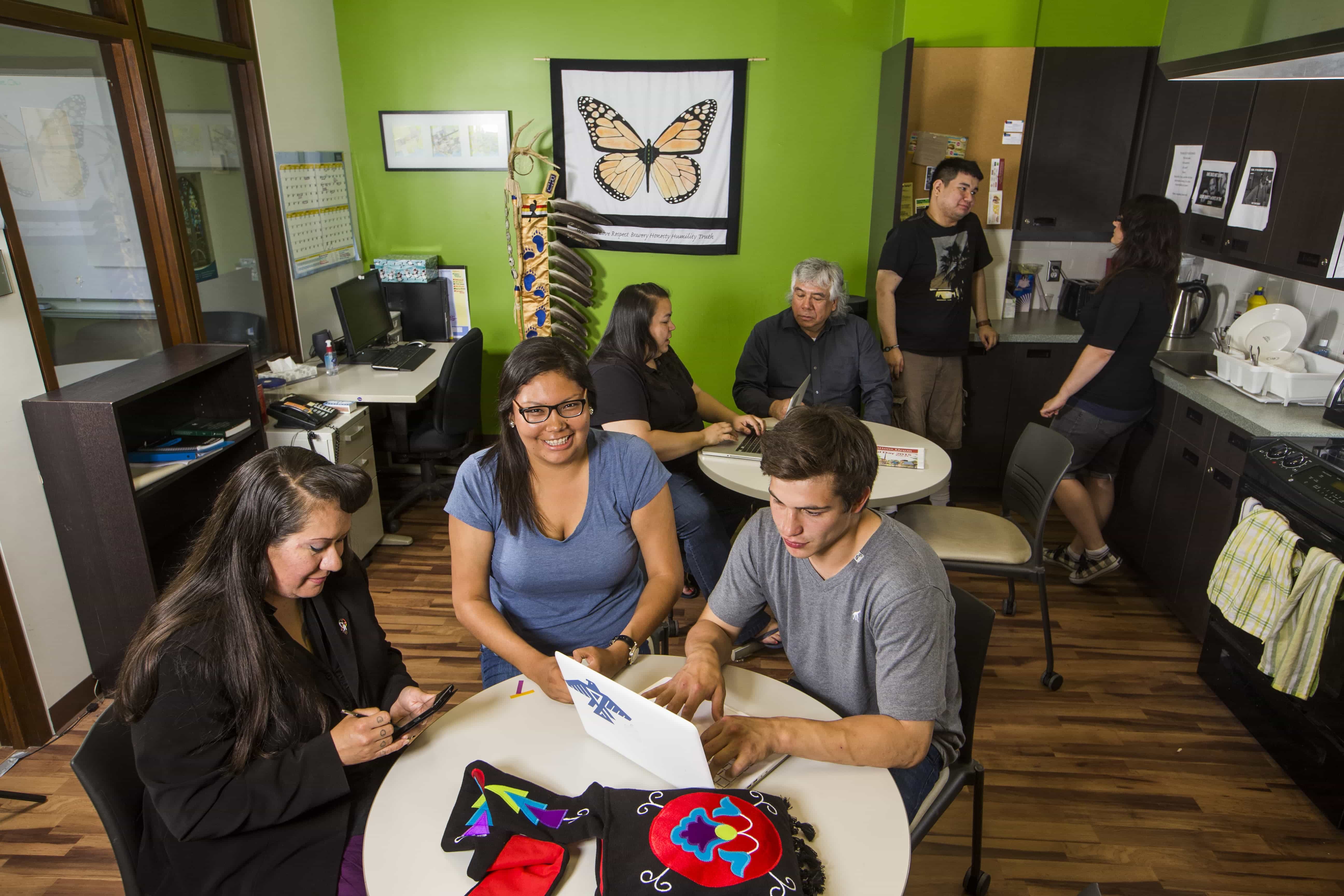Advancing Indigenous Initiatives

The Truth and Reconciliation Commission of Canada (TRC) (external link) has emphasized the special role of educational institutions, both in terms of the state of relations between Indigenous and non-Indigenous peoples and the role education can play in supporting Indigenous knowledge and reconciliation more broadly.
Toronto Metropolitan University is steadfastly committed to truth and reconciliation.
Situated in Toronto, home to one of the largest and most diverse Indigenous populations in Canada, TMU is well placed to serve as a leader in this area.
Realizing these objectives involves thoughtful cross-campus collaboration led by Indigenous voices, and the broader Indigenous community, to ensure the steps we are taking are meaningful and result in a positive impact in whatever areas they touch.
In recent years, groups and individuals across the university have begun this important work. Going forward, those initiatives, as well as new ones, will be supported. Initiatives related to this priority will also remain informed by the contributions of the university’s Truth and Reconciliation Commission Strategic Working Group, which is guiding the implementation of recommendations from the (PDF file) 2018 TRC Community Consultation Report.
This priority is about embedding and sustaining Indigenous thinking, ideas, ideals, cultures and worldviews in our work. Fundamentally, it is about ending the marginalization of Indigenous peoples and knowledges while ensuring Indigenous communities can continue to grow and thrive at the university. TMU aspires to lead the way in transforming Canadian social institutions and norms, and moving toward a future defined by mutual respect and collaboration.
Other Priorities
Building on existing foundations
Entrenching an Indigenous focus in our university affairs and across our community is critical. This includes:
- Growing and retaining Indigenous faculty and staff;
- Integrating Indigenous pedagogies and experiential learning opportunities;
- Expanding curriculum with Indigenous content and perspectives, led by Indigenous peoples;
- Recruiting and supporting Indigenous students in all academic programs;
- Promoting community-grounded research and Indigenous research practices;
- Transforming university space to reflect and expand the Indigenous community’s presence; and
- Ensuring ongoing education and training for the campus community about Indigenous histories.